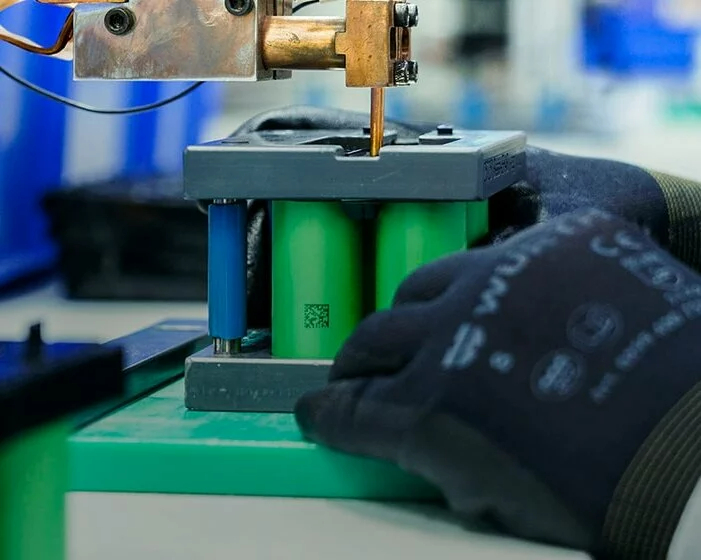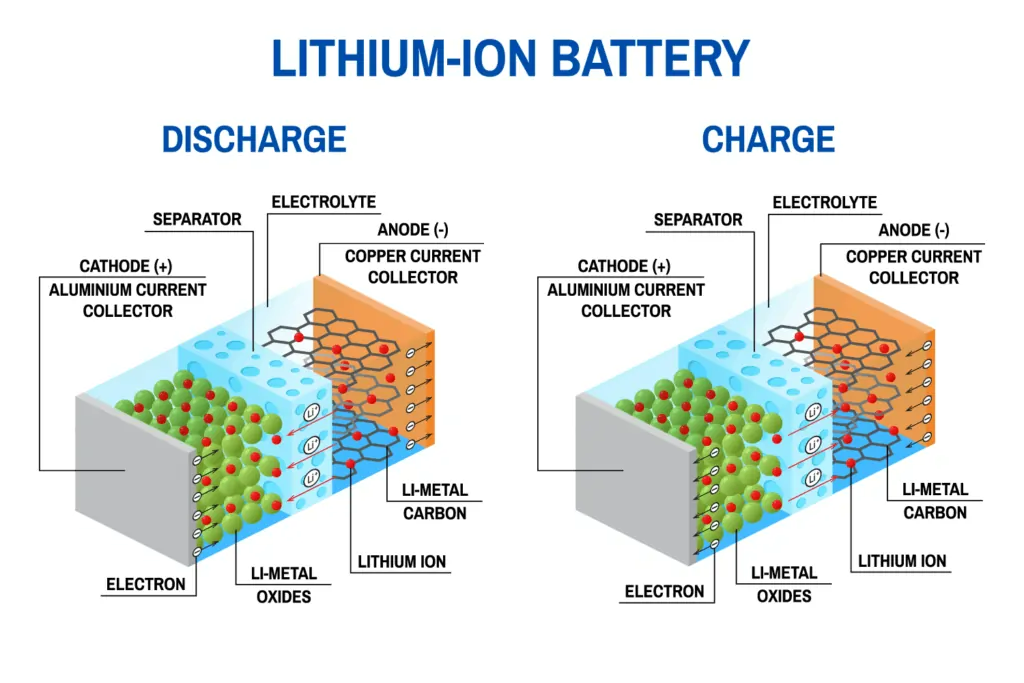
4 Advantages of Li-Ion Batteries
Share
Lithium-ion batteries, like lithium iron phosphate batteries, can provide an ideal solution for renewable energy storage in your business. Lithium-based battery chemistry is often superior to its alternative chemistries, such as lead batteries. Lithium-ion batteries provide their own unique advantages like high energy density, low maintenance, performance and longevity, and versatility.
What are lithium-ion batteries, and how do they compare to lithium iron phosphate ones?
In both batteries, the lithium-ion moves between the positive and negative electrodes to charge and discharge. Graphitic carbon electrodes with metal backings are used in the anodes of both battery types as well. Lithium atoms in the anode are separated from their electron and ionized during discharge. The ions move from the anode and pass through the electrolyte until they reach the cathode, reconnect with the electrons and become neutral. See a diagram of the charge and discharge process below.
lithium-ion battery
Lithium-ion batteries offer unique advantages over their alternative lithium and other elemental chemistries. Their benefits are outlined below. To read more about the similarities and distinctions between lithium-ion and lithium iron phosphate batteries.
High Energy Density
Lithium-ion batteries offer the highest energy density in the rechargeable-battery market (100-265 Wh/kg). This makes charging a lithium-ion battery easier, faster, and long-lasting. This makes for a more powerful battery overall- even when compared to lithium iron phosphate ones.
Low Maintenance
Lithium-ion batteries are easy to use and relatively low maintenance, especially compared to nickel-based batteries. No priming equipment is required and maintaining their battery life does not entail scheduled cycling. Lithium-ion batteries also have no memory effect, which would cause batteries to perform at a lower capacity after repeated partial discharge and charge cycles.
Performance and Longevity
Lithium-ion chemistry is high-performing and ideal for high-power applications. They deliver more current compared to batteries with nickel-based chemistry. They have the capacity to deliver up to 3.6 Volts, which is three times higher than their nickel alternatives. Due to their slow self-discharge rate (around 1.5-2% per month), lithium-ion batteries have a long shelf life.
Versatility
Lithium-ion batteries provide an ideal renewable energy solution in many different applications. Their technology can be used to power or store energy for portable electronic devices, electronic cars, aerospace, and other high-power applications.


